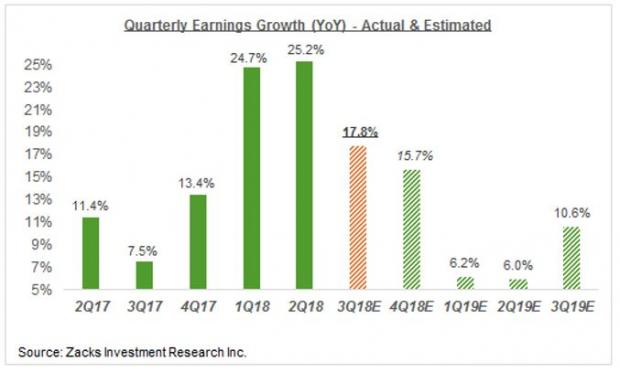Bank stocks have perked up a bit lately on rising interest rates, but the industry has struggled this year on persistent worries about the shape of the yield curve, trends in loan portfolios and trading volumes and the duration of the current economic cycle. With the yield curve starting to steepen in recent days, some of these worries have started easing. But given a number of previous ‘false dawns’, bank stock investors are justifiably skeptical of the staying power of recent interest rate moves.
JPMorgan (JPM), which kick-starts the Q3 earnings season for the Finance sector on October 12, is expected to report +14% higher earnings on +7.4% higher revenues. The bank’s Q3 EPS estimates have come down modestly since the quarter got underway, with the current $2.25 per share estimate down 4 cents over the past month; not a big decline, but a decline nevertheless. Estimates for Wells Fargo (WFC), which reports the same day as JPMorgan, have remained stable over the same time period, likely reflecting Wells’ limited exposure to the capital market business, which has been a source of weakness for the major banks.
As with JPMorgan, Q3 estimates for a number of banks came down since the quarter started. Total Q3 earnings for the Zacks Major Banks industry, which includes JPMorgan, Wells Fargo and other major banks, are expected to be up +9.3% from the same period last year on +3.6% higher revenues. This would follow +17% earnings growth on +3% revenue growth in the preceding quarter. For the Finance sector, whose 45% earnings come from the Zacks Major Banks industry, total Q3 earnings are expected to be up +29.3% on +3.1% higher revenues.Â
The chart below shows the expected Q3 earnings growth pace for the index in the context where growth has been in recent quarters and what is expected to come in the following few quarters.

As you can see, the growth picture remains very strong, even though it is expected to decelerate in the current and coming quarters. But this isn’t news for the market, as consensus expectations have been reflecting this deceleration for quite some time.

